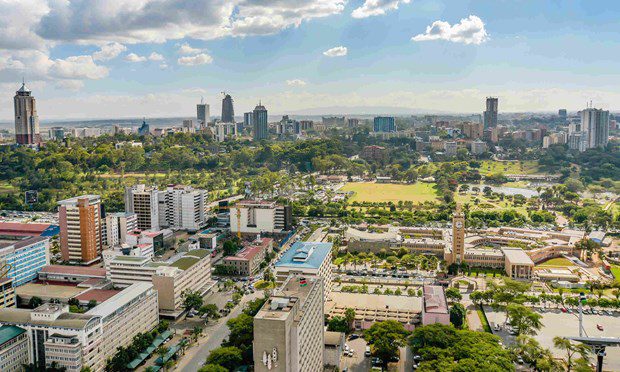Nariobi, Africa
In movies, TV shows, books and just about any medium of entertainment we consume, Africa is often reduced to an image of this one giant hut with sick people in it. However – surprise, surprise – many parts of the continent are, in fact, rapidly growing, and we’ll see them as well-developed, bustling economies within our lifetimes. Many of these nations are often over-looked or simply unseen, yet some astute investors have taken advantage of this and decided to invest in places with bright futures to secure bounds of profit. Let’s dissect just two of the many countries that are experiencing this change, and examine what fuels their growth.
Let’s begin with Ethiopia, where the headquarters of both the African Union (AU) and the United Nations Economic Commission for Africa (UNECA) reside. This is considered as the region from which modern humans set out to explore the world; our birthplace. It’s also the place where the consumption of coffee began. You can thank them for a lot. Ethiopia has many achievements to boast about, including one of the highest GDP growth rates in the world, reaching approximately 10 per cent. There are a variety of initiatives the country has taken to ensure success in its plan to overhaul the country into an economic hub for all of Africa. It wishes to become the core location for light manufacturing on the continent, as well as planning to grow its export of coffee and other agricultural products. Furthermore, they have decided to expand their tourism output. A wise move, considering the country’s tremendous tourist locations such as ‘Lalibela’: a town famous for its giant churches, carved into the rock of the landscape.
Ethiopia has advantages in many sectors, but in addition to this, the government is in the process of privatising many of the state-owned enterprises to attract foreign investment and make a proper move towards a market economy as opposed to their current mixed economy with a large public sector. Rationalising their government regulation has helped them significantly in this effort to build their economy. Despite these recent improvements, Ethiopia is still one of the poorest countries in the world and is plagued with famine and disease. Not only that but as racial divisions come to light after years of systemic exclusion and subordination of the Oromo, they have come out to lead protests against the government. Whether they will be granted the rights they deserve is to be seen, but it has finally opened up lines of communication about their ethnic oppression. Ultimately there is still hope for Ethiopia and while it may be riddled with corruption, environmental issues, concerns with regards to ethnic divisions and so much more to be addressed, their future looks still to be promising.
Now to Kenya, one of Africa’s largest and promising economies – a nation which has proven itself in the past decade and continues to grow at a rapid pace. Not only impressing with fast development, Kenya has set out on a path written down by what’s called ‘Vision 2030’, which calls for a ‘low carbon climate resilient development pathway’ to ensure a focus on eco-friendly growth. The country’s economy can be broken down into many successful sectors, but the major ones are that of agriculture, tourism and services. Having such rich diversity of flora and fauna has given them a substantial advantage to other tourist destinations, as people from around the world come to explore their ecosystems and interact with native animals. Tourism has impacted the country in many ways: for example, it has enhanced water supply to remote areas, improved public cleanliness and broadened their global outlook. However, Kenya does have a large banking sector as well, and a growing telecommunications area. Moreover, if you ever visit Nairobi, you’ll see many hypermarket chains and expansive shopping malls (much better than Canberra Centre, to be honest). Following the service sector, of course, is their significant agricultural sector with major exports of coffee and flowers. Kenyan tea is also a fantastic product that is universally enjoyed. Combining these sources of growth, Kenya is progressing quickly. Despite not having as high GDP growth as other developing nations, it is doing quite well for itself. However, the country is also held back by corruption and division amongst ethnicities. There are many challenges that lie ahead, yet with the help of countries that both surround it and allies such as India and China, they have been able to overcome a lot of it.
There are five fundamental changes taking place which allow for growth to occur in these countries after years of uncertainty and many disasters. To begin with, governments are becoming increasingly democratic and accountable, and more sensible economic policies are being adopted. Globally, the end of the debt crisis has been influential, alongside significant changes with the international community itself. There has been more domestic innovation and increased opportunities for business and political accountability, and finally a new generation of well-educated policymakers, activists, and business leaders – all leading to this rise in growth.
These emerging nations still face multifarious challenges, and their growth is still quite young and somewhat fragile. They continue to realise the potential of women’s empowerment, which has so far maximised the speed and sustainability of this growth. They show us that, in spite of being considered destitute places of failure, they can turn everything around and climb out of poverty. These countries are showing that despite everything that has challenged them, they have the ability to secure peace, increase prosperity and ultimately reward their citizens with great futures.
We acknowledge the Ngunnawal and Ngambri people, who are the Traditional Custodians of the land on which Woroni, Woroni Radio and Woroni TV are created, edited, published, printed and distributed. We pay our respects to Elders past and present. We acknowledge that the name Woroni was taken from the Wadi Wadi Nation without permission, and we are striving to do better for future reconciliation.
